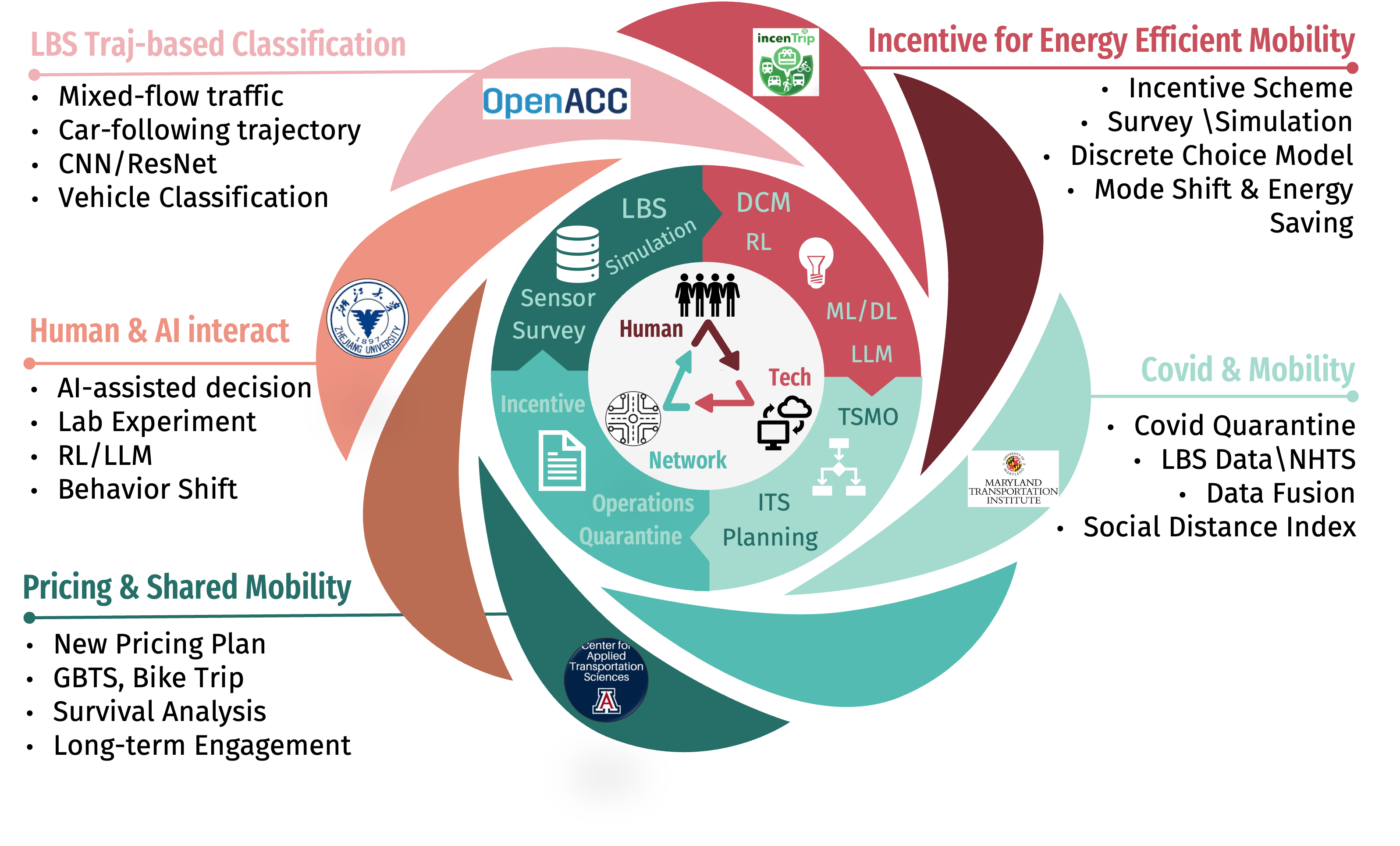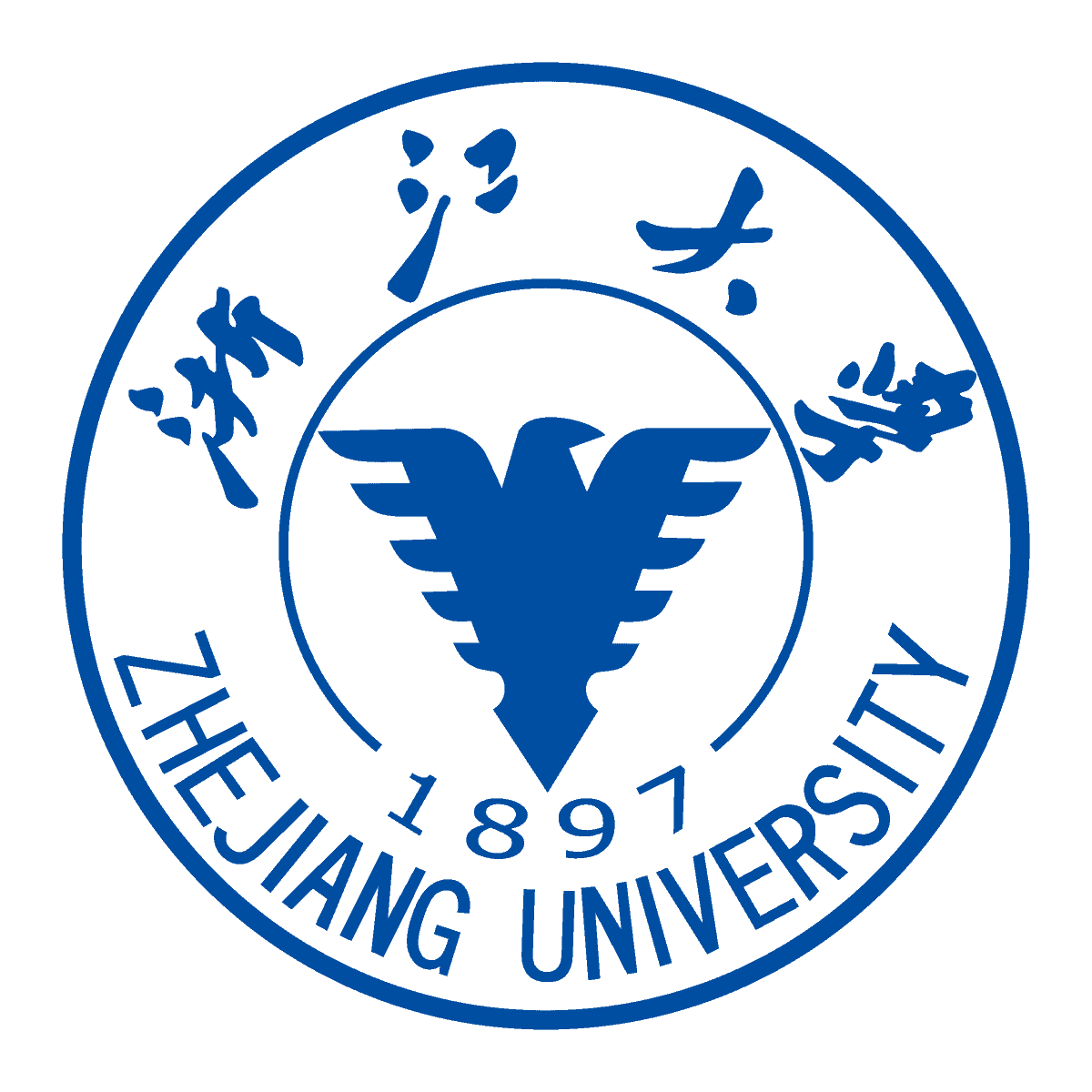Postdoctoral Research Associate at the Center for Applied Transportation Sciences, Civil & Architectural Engineering and Mechanics, The University of Arizona.
Developing and applying data-driven and simulation-based frameworks to analyze how emerging mobility systems—including shared mobility, automation, electrification, and AI-assisted decision-making—affect travel behavior, transportation system performance, the environment, and broader social outcomes.
Research Roadmap

Work Experience

Postdoctoral Researcher — University of Arizona
Research Areas: Agent-based Model, Micromobility, Traffic Simulation

Postdoctoral Researcher — Zhejiang University
Research Areas: Human-Computer Interactive Experiment, Agent-based Model

Senior Algorithm Engineer — Alibaba Cloud Computing Co. Ltd.
Research Areas: Agent-based Model, Micromobility, Traffic Simulation

Research Assistant (Part-time) — National Transportation Center, University of Maryland
Research Areas: Discrete Choice Model, Human Mobility, Travel Mode & Purpose Detection
Education

Ph.D., Transportation Engineering — University of Maryland
GPA: 3.89/4.0 · Coursework: Applied Machine Learning; Discrete Choice Analysis; Computational Statistics
M.S., Management Science & Logistics — Tongji University
GPA: 3.52/4.0 · Coursework: Probability & Statistics; Advanced Operations Research
B.S., Industrial Engineering — Nanjing University
GPA: 3.50/4.0 · Coursework: Operations Research; Data Structures & Algorithms; Probability & Statistics
Technical Skills
C++, Python, scikit-learn, TensorFlow, PyTorch, R, SQL, Docker, Ray
Teaching Experience
Co-Teaching with Dr. Mingfeng Shang — CE 363: Transport Engineering and Pavement Design, University of Arizona, Fall 2025.
Contact
| Location | Tucson, Arizona, USA |
| zhaojun@arizona.edu | |
| linkedin.com/in/jun-zhao-ua | |
| Google Scholar | scholar.google.com |


